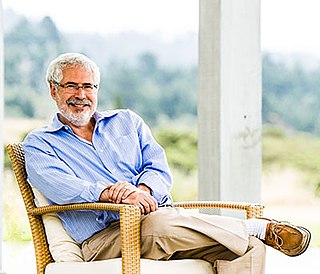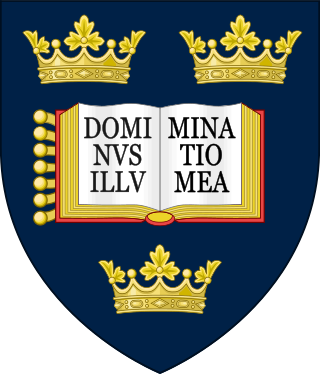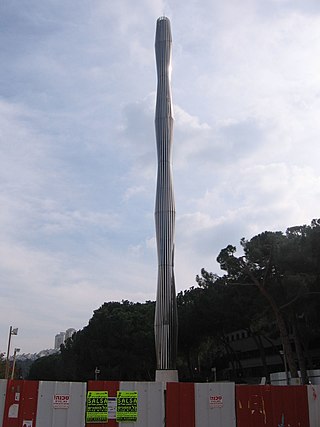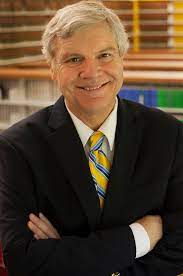Related Research Articles
A startup or start-up is a company or project undertaken by an entrepreneur to seek, develop, and validate a scalable business model. While entrepreneurship includes all new businesses, including self-employment and businesses that do not intend to go public, startups are new businesses that intend to grow large beyond the solo founder. At the beginning, startups face high uncertainty and have high rates of failure, but a minority of them do go on to be successful and influential.
Technology transfer (TT), also called transfer of technology (TOT), is the process of transferring (disseminating) technology from the person or organization that owns or holds it to another person or organization, in an attempt to transform inventions and scientific outcomes into new products and services that benefit society. Technology transfer is closely related to knowledge transfer.

A science park is defined as being a property-based development that accommodates and fosters the growth of tenant firms and that is affiliated with a university based on proximity, ownership, and/or governance. This is so that knowledge can be shared, innovation promoted, technology transferred, and research outcomes progressed to viable commercial products. Science parks are also often perceived as contributing to national economic development, stimulating the formation of new high-technology firms, attracting foreign investment and promoting exports.
Business incubator is an organization that helps startup companies and individual entrepreneurs to develop their businesses by providing a fullscale range of services starting with management training and office space and ending with venture capital financing. The National Business Incubation Association (NBIA) defines business incubators as a catalyst tool for either regional or national economic development. NBIA categorizes its members' incubators by the following five incubator types: academic institutions; non-profit development corporations; for-profit property development ventures; venture capital firms, and a combination of the above.
Intrapreneurship is the act of behaving like an entrepreneur while working within a large organization. Intrapreneurship is known as the practice of a corporate management style that integrates risk-taking and innovation approaches, as well as the reward and motivational techniques, that are more traditionally thought of as being the province of entrepreneurship. Corporate entrepreneurship is a more general term referring to entrepreneurial actions taking place within an existing organization whereas Intrapreneurship refers to individual activities and behaviors.
Technological innovation is an extended concept of innovation. While innovation is a rather well-defined concept, it has a broad meaning to many people, and especially numerous understanding in the academic and business world.

Steve Blank is an American entrepreneur, educator, author and speaker based in Pescadero, California.

Ali Jafari, is a serial entrepreneur who is well known for his research and entrepreneurship in the area of Information Technology (IT), more specifically, on development of a series of "Learning Management System(s)" (LMS). Dr. Jafari is currently working as a Professor of Computer and Information Technology at the Purdue School of Engineering and Technology and Director of the CyberLab at Indiana University-Purdue University Indianapolis (IUPUI). He continues to bring innovation and new perspectives to the smart learning environment industry to make teaching and learning easier and more powerful.
Entrepreneurship is the creation or extraction of economic value. With this definition, entrepreneurship is viewed as change, generally entailing risk beyond what is normally encountered in starting a business, which may include other values than simply economic ones.
Warwick Ventures is a University technology commercialisation office of the University of Warwick, in Coventry, United Kingdom.

Oxford University Innovation Limited (OUI) is a British technology transfer and consultancy company created to manage the research and development (R&D) of University spin-offs. OUI is a wholly owned subsidiary of the University of Oxford, and is located on Botley Road, Oxford, England. OUI was previously known as Isis Innovation (1988–2016) and Oxford University Research and Development Ltd (1987–1988).
An entrepreneurial ecosystems or entrepreneurship ecosystems are peculiar systems of interdependent actors and relations directly or indirectly supporting the creation and growth of new ventures.

T3 Technion Technology Transfer is the technology transfer unit of the Technion – Israel Institute of Technology in Israel. The unit operates under the auspices of the Technion Research & Development Foundation.
The Banting and Best Centre for Innovation and Entrepreneurship is an initiative of the University of Toronto which facilitates business mentorship and the development of commercially viable innovations. The goal of the Centre is to foster startup companies by supporting new ideas as they are developed and then during the incubation phase on through commercialization.
Kevin M. Short is an American mathematician and entrepreneur. He is a professor of Applied Mathematics at the University of New Hampshire. He is also co-founder and Chief Technology Officer (CTO) at Setem Technologies, in Newbury, Massachusetts. Since 1994, when he began at UNH, Short's academic research and work has continually focused on tying together nonlinear chaos theory and signal processing so that nonlinearity can play a major role in the future of technology development.
University technology transfer offices (TTOs), or technology licensing offices (TLOs), are responsible for technology transfer and other aspects of the commercialization of research that takes place in a university. TTOs engage in a variety of commercial activities that are meant to facilitate the process of bringing research developments to market, often acting as a channel between academia and industry. Most major research universities have established TTOs in the past decades in an effort to increase the impact of university research and provide opportunities for financial gain. While TTOs are commonplace, many studies have questioned their financial benefit to the university.
The common definition of academic entrepreneur is similar to the original definition of ‘entrepreneur.’ It states “the AE is a university scientist, most often a professor, sometimes a PhD student or a post-doc researcher, who sets up a business company in order to commercialize the results of his/her research” Academic entrepreneurship today can be understood as either:
IpOp model is a strategic management approach for pre-project analysis suitable for innovation management and corporate entrepreneurship. Besides guiding innovators on how to analyze an opportunity, it explains how to draft an opportunity case or a business plan to let decision-makers, such as investors, or management, assess the merits of the opportunity.

Anthony J. “Tony” Luppino is an American attorney, legal scholar, and author. A law professor at the University of Missouri - Kansas City School of Law since 1991, he is the Rubey M. Hulen Professor of Law and Urban Affairs, Director of Entrepreneurship Programs, and Senior Fellow with the UMKC Regnier Institute for Entrepreneurship & Innovation. He is particularly active in the areas of entrepreneurship and business law, and cross-disciplinary studies and programs connecting them.
References
- ↑ "University spin-outs: the secrets of their success". the Guardian. 2014-12-09. Retrieved 2020-06-07.
- ↑ Michaels, Daniel (2019-10-09). "Europe's Old Universities Spin Out New Tech Companies". Wall Street Journal. ISSN 0099-9660 . Retrieved 2020-06-07.
- ↑ Shane (2004).
- ↑ See for example: Vohora et al. (2004).
- ↑ Di Gregorio & Shane (2003); Klofsten & Jones-Evans (2000); Kondo (2004).
- ↑ Clarysse et al. (2005); Van Burg et al. (2008); Wright et al. (2007).
- ↑ Bird et al. (1993); Shane (2004); Slaughter & Rhoades (2004).
- ↑ Van Burg et al. (2008).